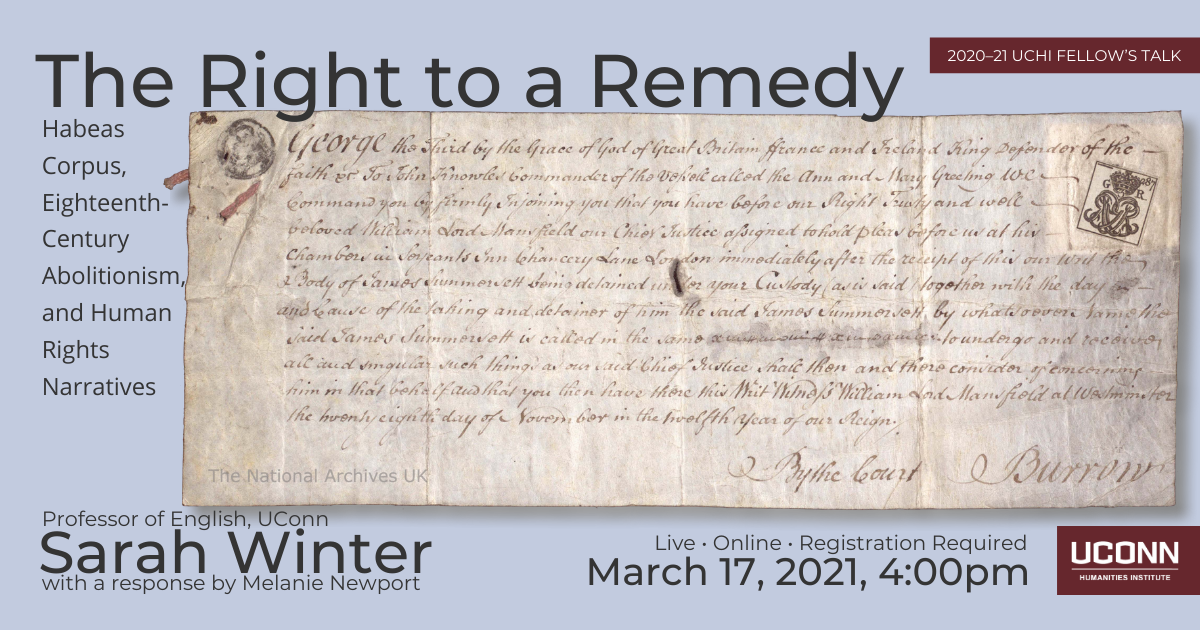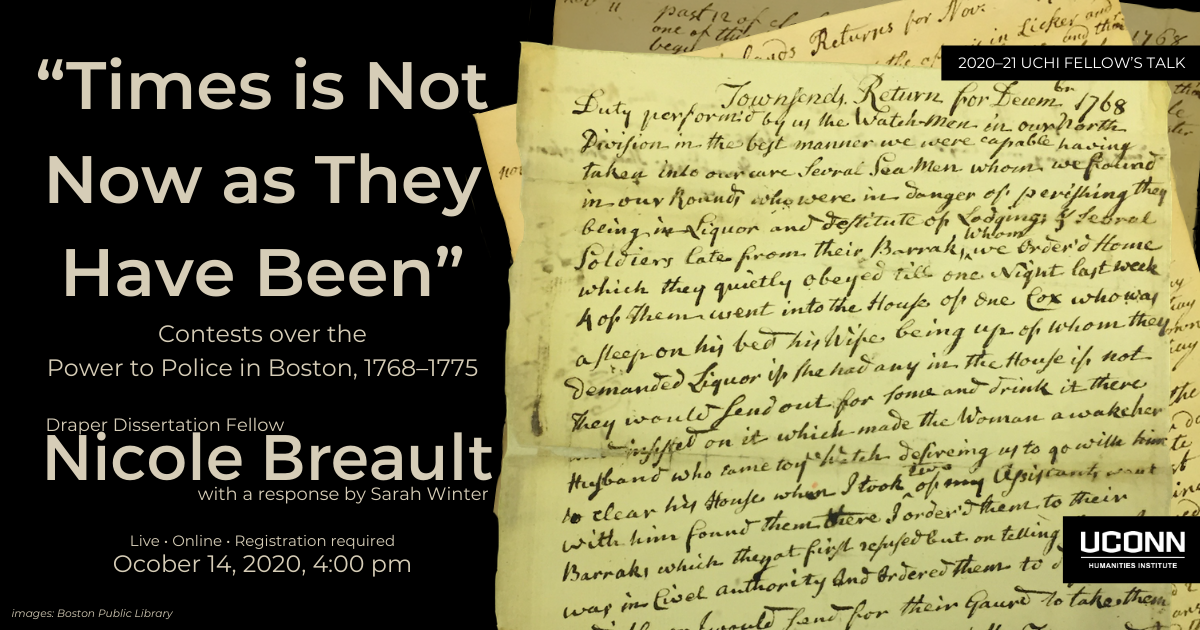The Right to a Remedy: Habeas Corpus, Eighteenth-Century Abolitionism, and Human Rights Narratives
Sarah Winter (Professor of English, UConn)
with a response by Melanie Newport
Wednesday, March 17, 2021, 4:00pm (Online—Register here)
On 19 March 1783, Olaudah Equiano, a merchant seaman and former slave, visited the London home of antislavery activist Granville Sharp, to report a recent trial in which the owners of the slave ship Zong had sued to recover their insured losses on a cargo of 132 trafficked and enslaved Africans, who had allegedly been thrown alive into the sea by the ship’s captain and crew. Determined to hold these perpetrators accountable for mass murder, Sharp assembled a trial transcript and sent it to the Lords of the Admiralty, who had jurisdiction over all crimes committed on English ships at sea, with a cover letter insisting that “our Common Law ought to be deemed competent to find a remedy in all causes of violence and injustice whatosoever.” More than 150 years later, the eminent international lawyer, Hersch Lauterpacht, similarly criticized the framers of the Universal Declaration of Human Rights (1948) for failing to require that nation states enforce the rights they had proclaimed. According to “an inescapable principle of juridical logic,” he wrote, there are “no rights of the individual unless accompanied by remedies.”
This presentation traces historical connections between eighteenth-century abolitionism and modern human rights by focusing on citizen activists’ strategic uses of the writ of habeas corpus, a legal remedy for arbitrary detention that forms the basis for Article 9 of the UDHR. Such legal actions on behalf of fugitive slaves, political dissidents, and women incarcerated by their husbands gave rise to a recurring narrative about the failure of the law to protect human rights. Gothic rather than sentimental in genre, such remedial narratives urged citizens to take responsibility for human rights violations committed out of public view or under color of law—in prisons, out at sea, or behind closed doors.
Sarah Winter is Professor of English and Comparative Literary and Cultural Studies at the University of Connecticut, Storrs, and the Director of the Research Program on Humanitarianism at the UConn Human Rights Institute. An interdisciplinary scholar of British literature of the long nineteenth century and the history of the modern disciplines, she has also contributed chapters to edited collections on law and literature, the history of legal and political thought, and human rights and literature. Her research for her current book project has also been supported by grants from the National Endowment for the Humanities and the UConn Human Rights Institute.
Melanie D. Newport is an assistant professor of history at UConn’s Hartford campus and affiliated faculty in American Studies and Urban and Community Studies. She holds a BA from Pacific Lutheran University, an MA from the University of Utah, and PhD from Temple University. Her current book project, under contract with University of Pennsylvania Press’ Politics and Culture in Modern America series, explores the political history of jail reform in Chicago from the 1830s to the present. Prior to joining the UConn Faculty in 2016, she taught at Temple University, Community College of Philadelphia, and Garden State Youth Correctional Facility. Newport’s work has been supported by the Center for the Humanities at Temple, the Black Metropolis Research Consortium, and the University of Illinois at Chicago and University of Chicago libraries.
Registration is required for the event.
If you require accommodation to attend this event, please contact us at uchi@uconn.edu or by phone (860) 486-9057.










